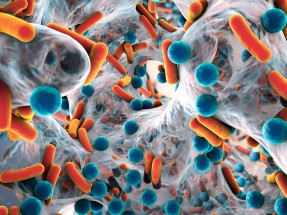Dutch government reserves €200 million for Holomicrobiome Institute
2023-07-02

New techniques have recently made it possible to measure, map, understand and predict the composition, functioning and effects of microbiomes. Microbiome research is therefore increasing explosively. Useful applications are also getting closer, everywhere in the food system: from healthier food to medical treatments, from sustainable and circular agriculture and livestock farming to better soil and water quality and less greenhouse gas and nutrient emissions. Innovative microbiome applications therefore also have great potential for the economy. Their organic approach will conquer billion-dollar global markets that are currently occupied by more chemically oriented products, such as fertilizers and pesticides.
Purpose of the project
Chronic diseases, antibiotic resistance, declining soil and water quality and nitrogen emissions: microbiomes play an important role in all these problems. For the first time, the consortium will investigate how microbiomes in all parts of our food system together form one large network: a 'holomicrobiome'. The Holomicrobiome Institute will bring together innovation in agriculture and livestock farming, in food production and healthcare, and in soil and water management in the Netherlands. Thanks to this integration, it can learn to understand and predict the complexity of microbiomes and their relationships with sustainability and health in a broad sense, with the help of AI-based models. In this way it quickly works towards a range of useful applications, such as:
- biological alternatives to fertilizers, chemical plant protection products and antibiotics;
- methods that prevent or treat chronic diseases;
- sustainable reuse of manure;
- reducing harmful emissions;
- restore the soils;
- making drinking and groundwater safer.
By working on fundamental knowledge about microbiomes and their interaction, possible applications arise in (preventive) healthcare, land and water management, food production and the reduction of climate and environmental damage in this food production sector. This proposal focuses in particular on fundamental and applied research into microbiomes and their cohesion, but also on investments in the utilization of knowledge and the development of human capital.
Who leads the project?
The proposal was submitted by the Ministry of Agriculture, Nature and Food Quality (LNV). All knowledge institutions in the Netherlands that conduct research into microbiomes are involved in the initiative. The core team of parties involved consists of ten Dutch universities (RU, RUG, TUD, UL, UM, UT, UU, UvA, VU and WUR) and six medical research institutes (ACTA, Amsterdam UMC, Erasmus MC, LUMC, Radboud UMC and UMCG). ). Numerous companies and knowledge institutes have also joined the proposal as partners.
More information
